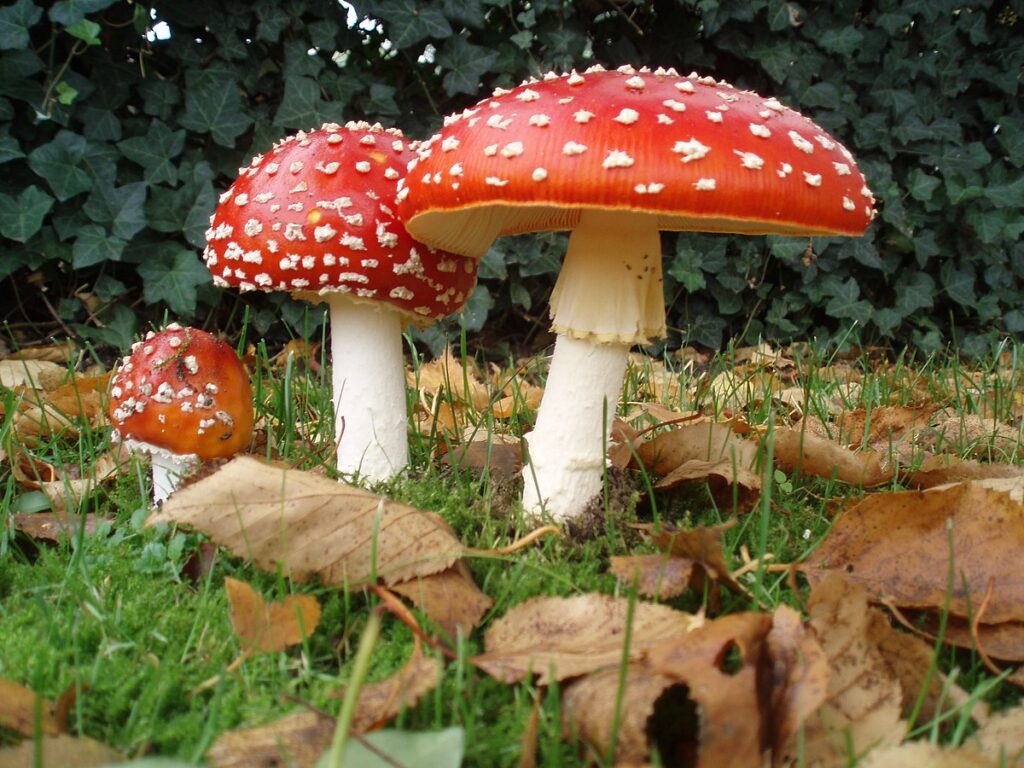Amanita Muscaria Medicinal Uses
- Al Nicola
- April 26, 2023
- 8:02 pm

Amanita Muscaria is a specific type of mushroom associated with multiple medical uses. This mushroom can be found in temperate regions of North America, Asia, Europe, and Northern Africa. The medical properties of Amanita muscaria date all the way back to the Viking age and extend throughout history.
Although there is more research that should be done on the therapeutic side of this mushroom, preliminary studies show great potential benefits. The mushroom is believed to have many pharmacological properties that may help with chronic pain, anxiety and depression, among many other conditions. Below are some of the medical uses associated with amanita muscaria
Relieves Chronic Pain
Pain is a common characteristic of many ailments. While some conditions are associated with severe pain, while others are mild. Whatever the case, pain is devastating and can result in multiple other problems affecting one’s quality of life. People use different remedies to deal with pain, and the unfortunate part is that some treatments are not effective.
Again, some remedies end up causing more harm than good, taking their side effects into the account. For example, pharmaceuticals sold over the counter are effective for a given period, and the pain will set back again once the effects wear off. On top of that, the drugs have may have side effects that can be more dangerous than the pain itself.
Fortunately, Amanita muscaria is believed to help patients who are suffering from chronic pain. For example, a 2013 study on the effects of Amanita muscaria found that the extract of this particular mushroom possessed antinociceptive properties linked to pain relief. It’s believed that muscimol and ibotenic acid can interact with certain neurotransmitters in the brain making the pain more manageable.
Has Antifungal Properties
Fungal infections can cause a lot of discomfort, and they require so much time to heal that many people get frustrated over it. Failing to apply antifungal creams and lotions daily may result in the infection being present far longer than expected. However, some suggest that Amanita muscaria can be helpful in the treatment of these ailments.
For example, a study conducted in 2020 proved that Amanita muscaria indeed has antifungal and antibacterial properties. By affecting certain enzymes in the body, this mushroom can effectively stop the infection from spreading. This implies that extract of this fungi may find a medical use in the treatment of fungal and bacterial infections.
Later in 2014, yet another study emerged, proving the effectiveness of this mushroom in fighting off infections. By inhibiting the growth of various dermatophytes Amanita muscaria can stall and treat the fungal infection.
Relieves Anxiety and Depression
Depression and anxiety are frequently considered one of the most dangerous mental health conditions, affecting millions of people worldwide. When combined these conditions can cause serious problems, that can, unfortunately, end in tragedy. Pharmaceuticals only mask the symptoms and don’t treat the root cause of these ailments.
However, when combined with some forms of psychotherapy, there are medications that can actually be helpful, the same goes with Amanita muscaria. Although it takes some time to notice the difference, the results are worth waiting for.
Studies suggest that Amanita may help by regulating serotonin levels. Serotonin is directly liked with mood swings, and by controlling this hormone symptoms of depression and anxiety may be effectively treated. Tryptamines have been used to treat conditions like PTSD, which can oftentimes be associated with depression. Although Amanita isn’t a tryptamine itself, research suggests that it may be an effective substitute.
Can Promote Sleep
One of the potential benefits of Amanita Muscaria is its ability to promote restful sleep. In particular, muscimol has been discovered to have sedative effects on the central nervous system that can help induce sleep. In studies conducted on mice, muscimol has been shown to increase the amount of time spent in non-REM sleep, the phase of sleep that is considered the most restful and restorative.
Furthermore, Amanita Muscaria has been found to have anxiolytic effects, which can help reduce anxiety and promote relaxation, making it easier for individuals to fall asleep. Since anxiety is a significant contributor to insomnia, lowering anxiety levels may help you get better sleep.
Anti-inflammatory Properties
As our body fights foreign objects inside of it, inflammation is a common immune response. Although inflammation is essential when dealing with wounds and other infections, it can cause extreme discomfort and can even be dangerous.
Studies that are currently available show that Amanita muscaria has the potential to deal with inflammation effectively. Therefore it’s totally possible to see Amanita supplements being prescribed by physicians in the future for the treatment of such conditions.
May Help in Cancer Treatment
According to Agency for Research on Cancer (IARC) there are approximately 17 million cancer cases each year. Unfortunately, this condition is common and usually is followed by increased anxiety levels as well as sleepless nights. Another symptom that has been linked with cancer is increased nausea, especially among those using chemotherapy to manage the condition.
One particular study conducted in 2018 suggests that Amanita muscaria extract has some anti-cancer properties. Additionally, it may help with other symptoms associated with cancer such as anxiety, nausea, and insomnia.
Final Thoughts on Medical Uses of Amanita Muscaria
As you can see, Amanita muscaria has the potential to treat many different conditions. Although more research is needed to determine the exact effects, studies that are currently available have strong suggestions that the extract of this mushroom can be extremely helpful.
Preliminary studies indicate that Amanita can help patients with insomnia, anxiety, depression, inflammation, and cancer. However, if you are planning on using amanita for medicinal purposes, it’s important to consult a medical professional before implementing these supplements into your daily life.

